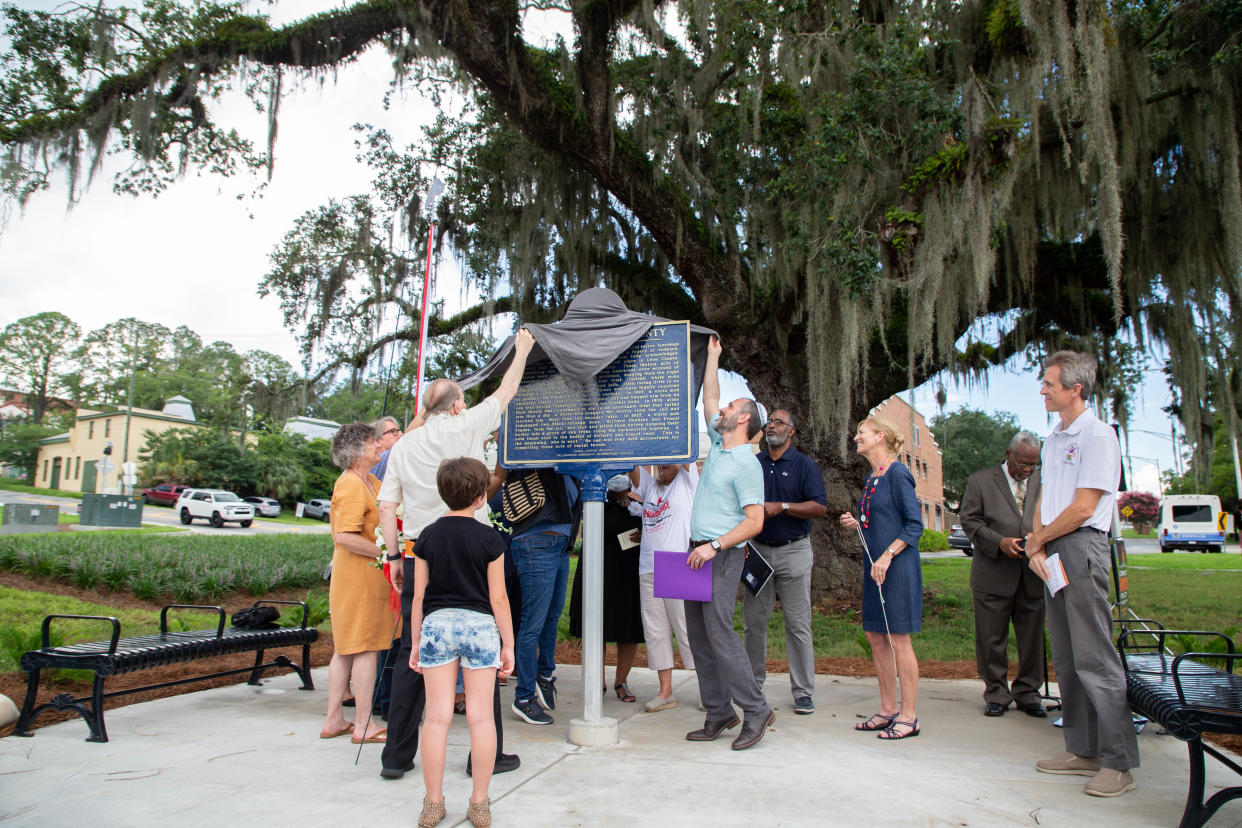Essay contest for Tallahassee teens focuses on racial justice and reconciliation

- Oops!Something went wrong.Please try again later.
Who would have thought that a study of history, its events, its recorded happenings, even the authentic photographs that go along with it, would for teachers and other truth tellers have become something like wading into thick and treacherous waters?
As with all resilient seekers of truth, there will be those who find ways to shine light and bring fresh air to sometimes difficult subjects.
And in Tallahassee, the members of the Tallahassee Community Remembrance Project are committed to helping young people learn about our American status — both its past and its present.
Memorials: Six years and counting: Advocates wait for Florida Capitol Holocaust and slavery memorials
School's in: A new grade, a new day: Bond Elementary begins 2022 school year as a B school
The Racial Justice Essay Contest for the Tallahassee Community Remembrance Project opens Aug. 22 and runs through December, 2022.
In 750 words, high school students in Leon County are invited to create essays that deal with difficult subjects, but which will give them insight into today’s world. Cash prizes totaling $5,000 will be awarded.
Remembrance Project members include Daynica Harley, an attorney working as an FSU Fellow and Clinical Professor with the Public Interest Law Center. Takeshia Stokes is a legislative analyst. Penelope Young is a long-time activist, teacher, and author.
They are three members of the committees that make up the Tallahassee Community Remembrance Project, part of a nationwide outreach sponsored by Montgomery, Alabama’s, famed Equal Justice Initiative (EJI) to engage high-school-aged students in researching and understanding the history of injustice and learning ways for healing.
“Five years ago,” says Stokes, “under the auspices of EJI’s founder, Bryan Stevenson, the Remembrance Project came to Tallahassee. Stevenson was very much responsible for the Legacy Museum in Montgomery and a part of the National Memorial for Justice and Peace, opened in 2018, where 805 iconic metal rectangles represent the counties in which lynchings and murders of African Americans occurred across the nation. These powerful symbols now hang in remembrance of the lost and are a future hope for interracial reconciliation and peace.”
As part of the effort to bring historical awareness to the present, EJI also works with communities to organize soil collection ceremonies and historical marker placement.
“Our present Tallahassee Community Remembrance Project,” says Stokes, “is a researched essay contest for grades 9-12 to develop local awareness, and a community impetus to discuss the past and present issues of what racial justice means.”
Harley notes that the topics from which the young essayists may choose can relate to a wide variety of social topics: violence, economic policies, incarceration, capital punishment, voter suppression, all of which contain racial components. “The Equal Justice Initiative’s Remembrance Project seeks to develop 'truth seekers' that they can become 'truth tellers,' ” she says.
EJI’s founder, Stevenson, has said in a conversation with Vox, that he truly became aware of not only injustice, but of the power of reconciliation when in Germany he saw what the Holocaust had done, but how German citizens seek not to turn their heads, but to heal from that horrific past; and in South Africa, where apartheid flourished, but efforts to rehabilitate that cultural aberration goes on.
Stevenson has said, “The shadow cannot be lifted until we shine the light of truth on the destructive violence that shaped our nation, traumatized people of color, and compromised our commitment to the rule of law and to equal justice.”
How or if these sensitive topics are addressed in public schools, this essay contest, open “to young people of all hues,” may be a transformative step toward shining that light of truth.
For registration and information, go to sites.google.com.
Never miss a story: Subscribe to the Tallahassee Democrat using the link at the top of the page.
This article originally appeared on Tallahassee Democrat: Essay contest for Tallahassee teens focuses on racial justice

